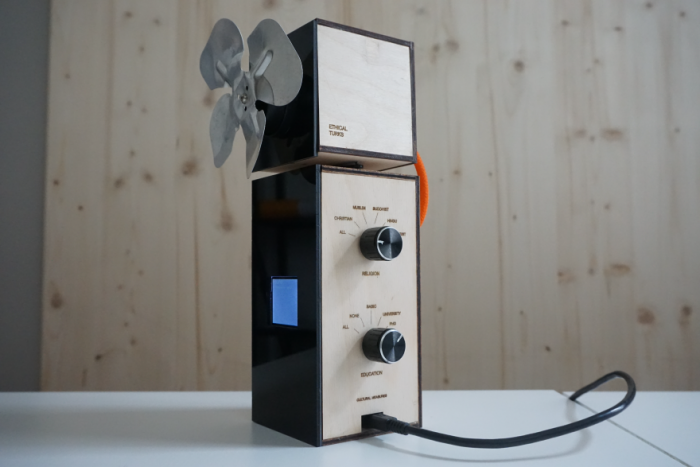
Intelligent devices are becoming more and more prevalent in day-to-day life. They help us find our keys, tell us if our pets are healthy, and some even remind us to read to our kids. As these objects become more complex and more embedded into life-and-death situations – like a self-driving car – one wonders what the moral implications these automated decisions will have and how can they be controlled.
Designers Matthieu Cherubini and Simone Rebaudengo attempt to answer these questions using everyday objects in their project, Ethical Things. Using Amazon’s Mechanical Turk, a platform that allows researchers to ask workers to complete human intelligence tasks, the designers set out to explore the idea that smart devices might need to rely on human reasoning to perform their function.
Humans are thought to be inherently ethical while intelligent devices use logic or mathematical reasoning to make independent decisions about their behaviour. With Ethical Things, the designers argued that smart devices have become too intertwined in our daily lives to rely on mathematical reasoning alone.
To demonstrate their idea, the designers programmed a rotating fan to ask an Ethical Turk, one of Amazon’s Mechanical Turk workers, whether it should focus on the fat person in the room or the thin person. The fat person sweats profusely while the thin person does not sweat as much. The Ethical Turks were required to make a choice and state their reasons.
According to the research, many of the answers generated showed a bias against overweight people while others chose to spread the fan’s attention equally regardless of who was in the room and what their individual needs were.
This revealed inconsistent, morally shaky reasoning on the part of the humans, proving that controlling the ethics of machines may not be as easy as sending a question to an online volunteer. As their research and that of many others expands, it will become all the more important to classify what morality in a machine would mean in the first place.






